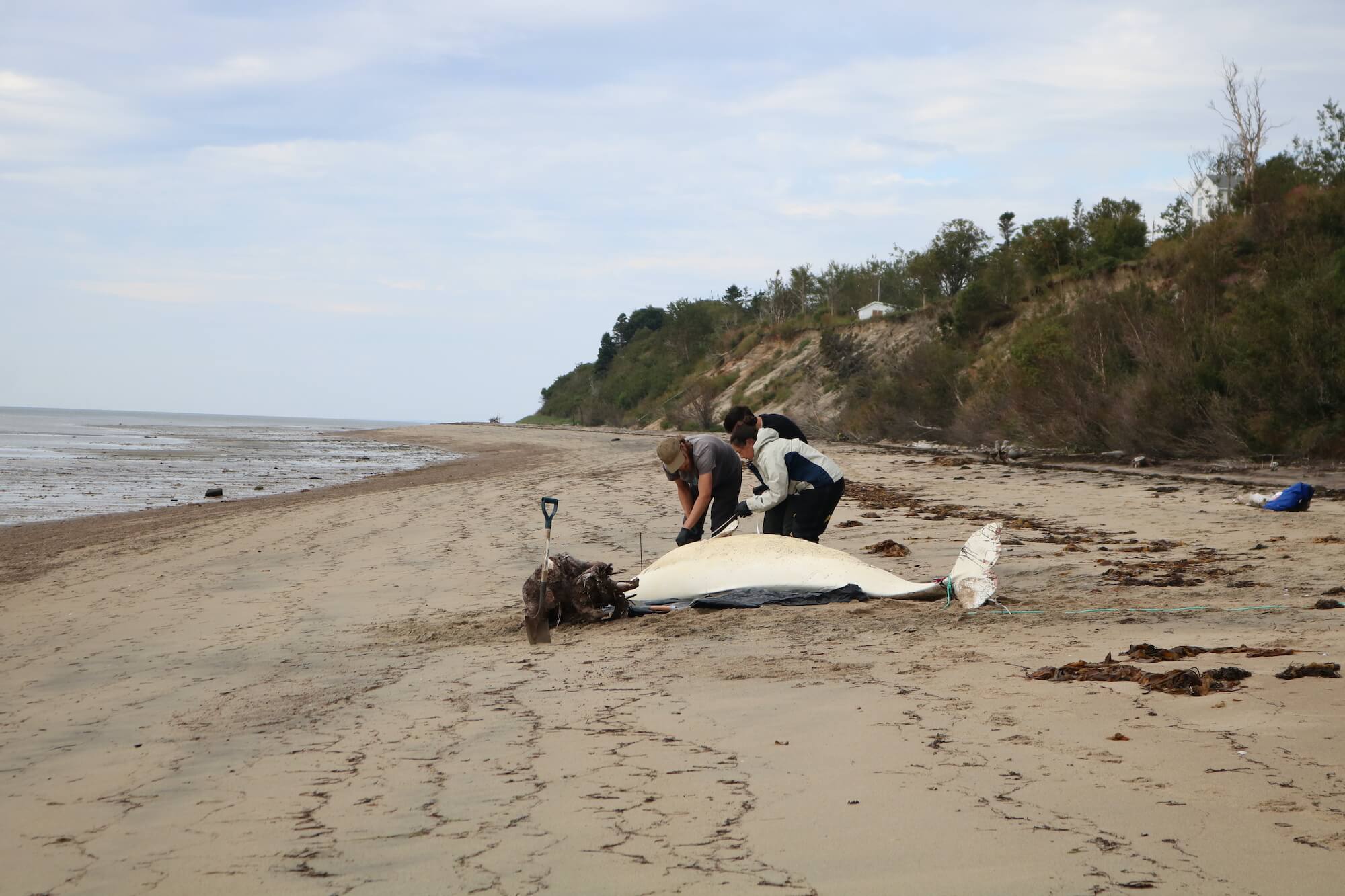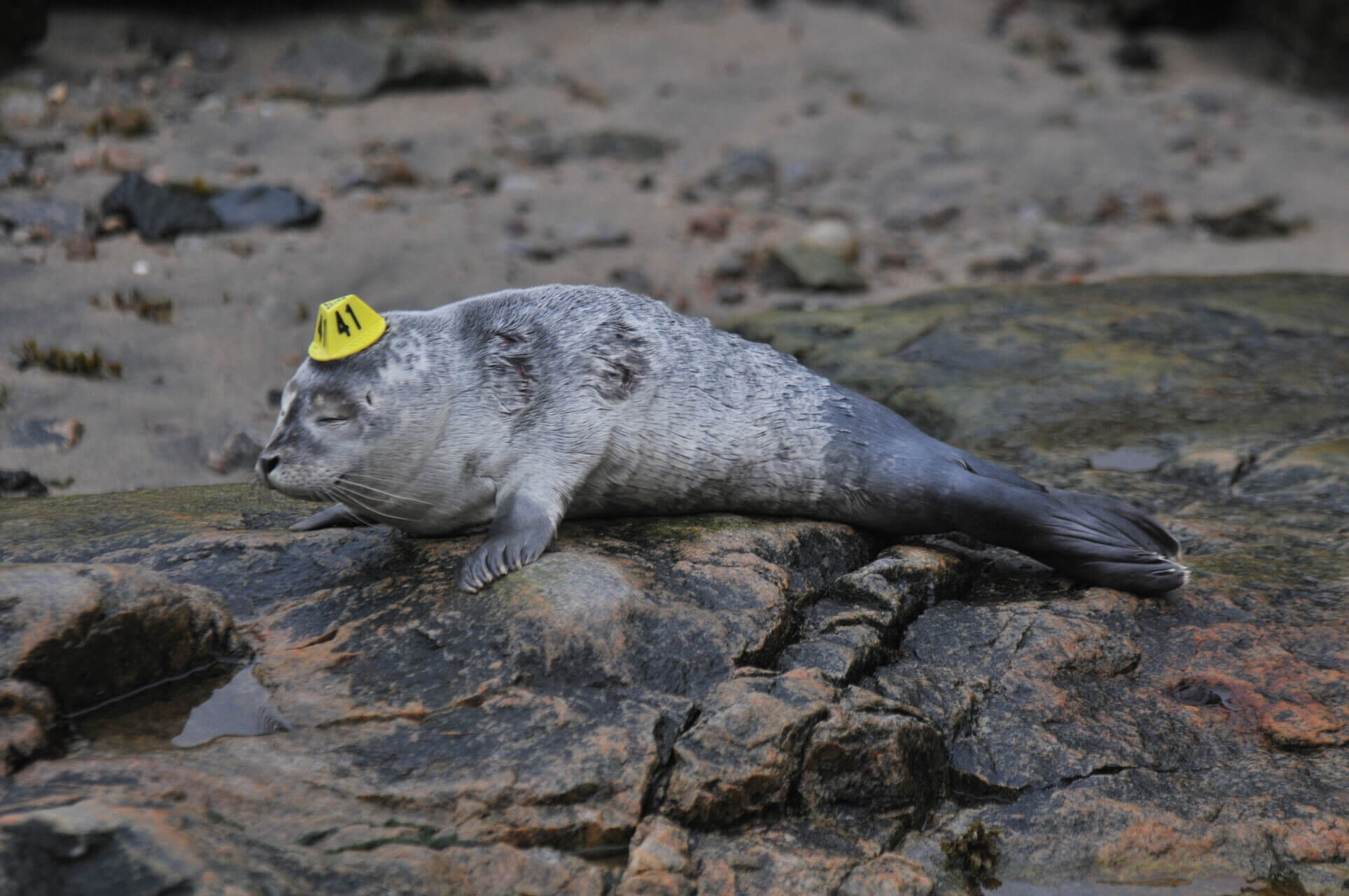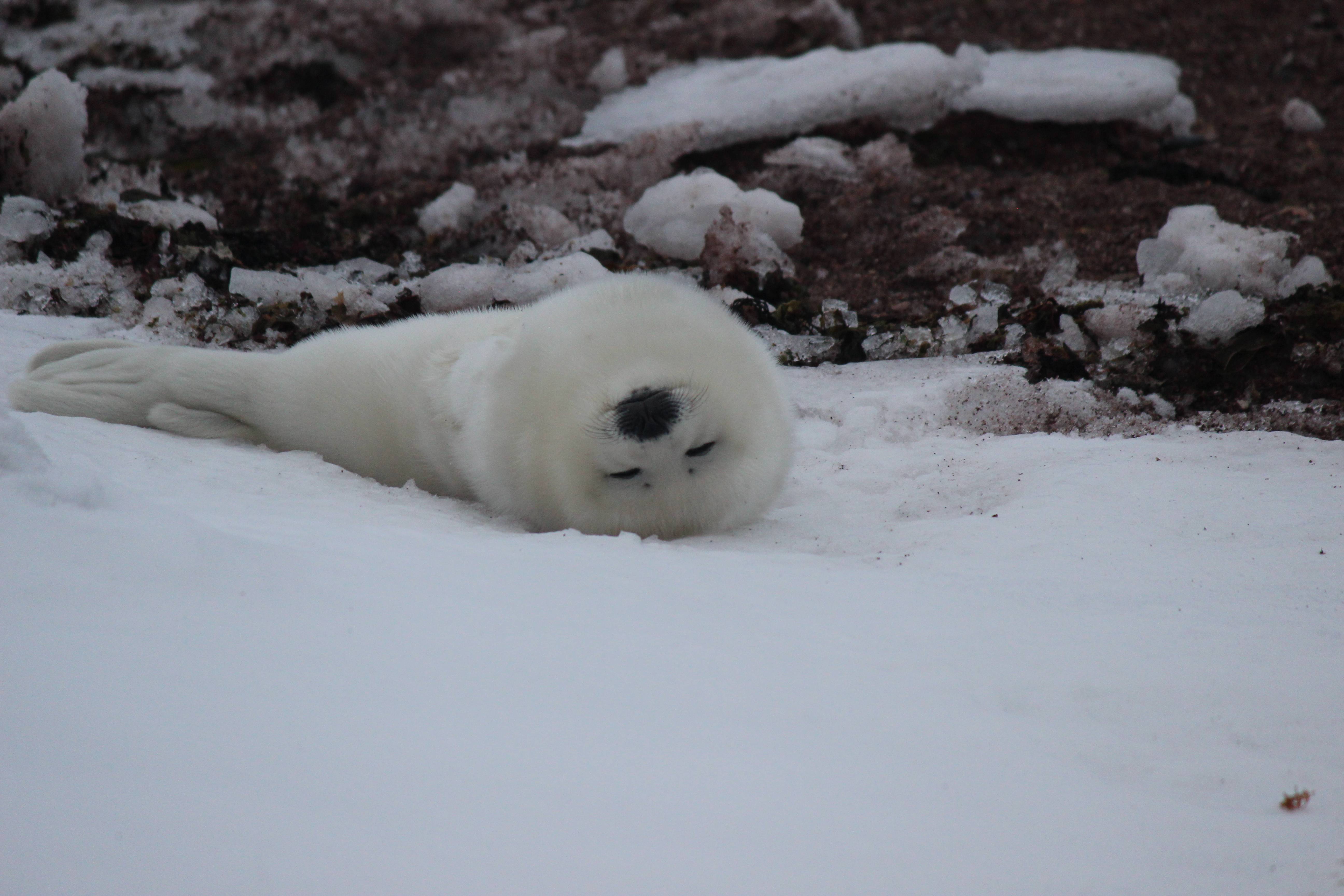Last week, Marine Mammal Emergencies received several calls for two vulnerable belugas: one near the Pointe-Noire observation site at the mouth of the Saguenay, and the other at the Marine Environment Discovery Centre (MEDC) in Les Escoumins. In both cases, observers reported immobile animals staying near the surface for long periods.
The sight of a sick or injured animal leaves few people indifferent. One of our natural reflexes is to want to help. However, this is not always possible and might not always be desirable. This difficult question is a key concern for the Quebec Marine Mammal Emergency Response Network. At its 2004 training, the Network adopted an ethical framework that serves as a guideline for determining how it responds. Generally speaking, this framework is rather non-interventionist; in other words, it advocates letting nature take its course and to intervene in natural processes as little as possible. The ethical framework adopted by the Network does propose, however, to implement response measures, if possible, in cases where the incident may have a direct human cause, such as incidental catches in fishing nets, for example. An intervention will also be attempted if it is deemed that this might contribute to the recovery of a species or an endangered population.
In the case of the struggling belugas observed in the Marine Park last week, teams from Parks Canada and the Group for Research and Education on Marine Mammals (GREMM) were dispatched to site to document the situation. Experts are particularly interested in identifying the individuals, their condition and the potential causes of their condition. These observations are then shared with veterinarians partnered with the Network to agree on a course of action.

The Pointe-Noire beluga was observed on two consecutive days in the same spot near the boulders, diving only rarely. Photos collected by park staff show a pronounced bump on the animal’s back, just behind its head. Hematoma, abscess or tumour? Hard to say without a tissue examination, remarks Stéphane Lair of the Université de Montréal’s faculty of veterinary medicine, examining the photos submitted to him.
The MEDC beluga showed a condition that was just as dramatic: pronounced emaciation and a major kink in its spine. Drone images collected by the GREMM team show that the animal was hardly using its little tail and was diving with great difficulty. Once again, without examining tissue samples, it will be difficult to make a diagnosis. For Stéphane Lair and Pierre Yves Daoust, a colleague of the former working at the Atlantic Veterinary College at the University of Prince Edward Island, the spinal curvature is probably not congenital, but rather the result of a trauma. Despite the apparent lack of any scarring, a run-in with a predator, another beluga or a boat could have caused a fracture and the deviation of the spine. According to the two veterinarians, this animal’s chances of survival are extremely low and it cannot be helped.
Despite limited response options, these observations are of great value for monitoring the beluga population in the St. Lawrence. This is why Marine Mammal Emergencies responds promptly and efficiently to the calls it receives (1-877 7baleine, or 1-877-722-5346), 24-7, all year round. Your collaboration is invaluable!






